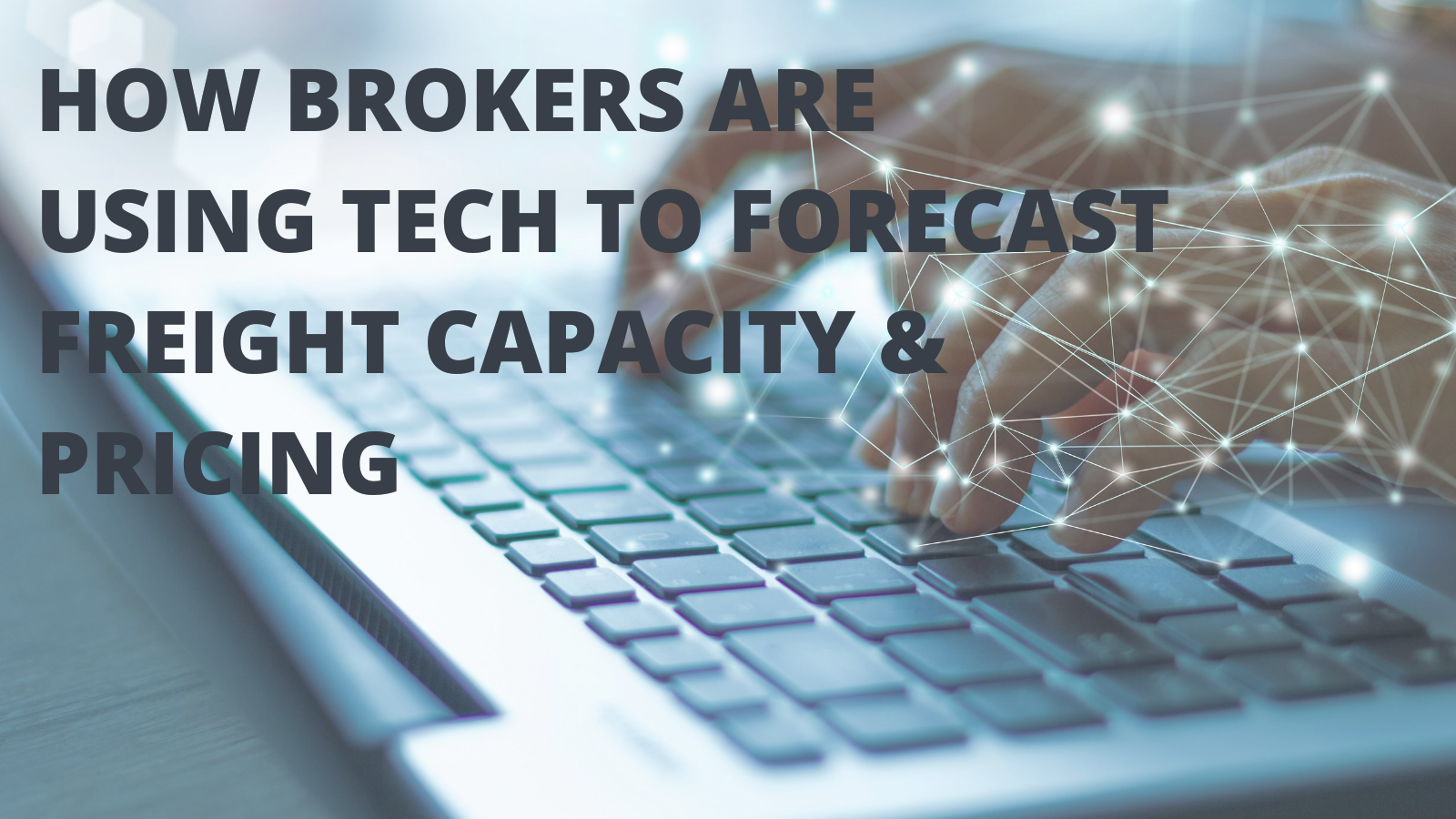How Brokers Are Using Tech To Forecast Freight Capacity & Pricing
.jpg) Pamela Nebiu
October 12, 2021
Pamela Nebiu
October 12, 2021

Technology such as digital freight matching can enable brokers to accurately forecast and predict freight capacity and pricing. With the proper advanced technology, brokers can analyze historical and new data to predict the freight capacity demands for different lanes and more accurately price freight. Forecasting shows solutions that use demand sensing to develop lane and mode-specific shipping demand projections to secure the capacity and price for the load. This blog will discuss the importance of forecasting freight capacity and pricing, how more connections arise from technology, and what positive changes forecasting can cause.
With advanced technology and analytic algorithms, all datasets have been integrated to create intelligent predictions about future pricing. But without technology and the ability to forecast freight capacity and pricing, there is a decrease in proactivity about transportation planning, resulting in delays, disruptions, and cost increases. Without predicting freight capacity, brokers will lose access to capacity visibility and effectively create more manual processes. When looking at boosting supply chain visibility to increase cash flow, Inbound Logistics states how shippers need to “use the information to create visibility into payment accuracy and timeliness and assist with critical financial forecasting and transparency into any errors so you can proactively resolve them.” Without the proper technology to forecast freight needs, correcting errors and creating more visibility would become difficult at best and subject to severe variations from actual costs and demands.
Freight technology helps brokers to gain access to lower rates, more efficient use of resources, and visibility into the movement of products. However, for shippers, the most valuable commodity technology can provide access to is previously hidden freight capacity. Technology can also analyze historical patterns, weather, demand signals, and other data points to allow transportation service providers to have predictive capacity. Along with finding accommodation for all needs regardless of mode and timeliness, forecasting can help avoid the difficulties involved in finding favorable cargo rates. In turn, brokers secure suitable freight capacity at the right price and service levels. New adaptations to technology—for example, freight matching on the go—can provide more visibility and ensure the best prices are provided and tracked for through data-driven decision-making. It amounts to making more connections, more easily, without delay and without added costs.
Freight forecasting analyzes freight flow on selected routes, compiling the data and using the information to predict the expected loads or shipment needs on those routes for the future. In any season, such as hurricane season, forecasting different paths that can be used rather than an unsafe course will help overcome the delay a hurricane may cause. Understanding the changes in the market and using the predictions in capacity and pricing can further benefit brokers by helping to:
- Accommodate changes within specific markets due to limited capacity, equipment or labor resources.
- Reduce risk by moving assets away from risk-laden markets due to disruptions.
- Apply data to understand likely cost changes based on historic versus real-time trends.
- Evaluate which carrier relationships are the most profitable from a broker standpoint and which are best for the shipper.
- Know when to award shipper-of-choice status (if a broker owns assets), and use that information to guide future contract negotiations with shippers as well.
- Track on-time pickup and deliveries across carriers, ensuring your network carriers are meeting your shippers’ expectations.
As technology evolves and adapts, more solutions for planning and predicting freight capacity and other vital issues, such as tracking truck driver safety, will inevitably arise. Keeping up with the technology today, forecasting freight capacity, and predicting market changes to pricing allows for better decision-making and more connections to maintain pricing control. To improve your company’s use of data to manage and find capacity, as well as to see the benefits of advanced technology, contact Edge Logistics today and get the answer to your logistics needs with data-backed, predictive functionalities.
About the Author
.jpg)
Pamela Nebiu
Pamela is the Senior Marketing Manager at Edge Logistics. She has a Bachelors of Arts from DePaul University in Public Relations and Advertising with a minor in Photography. Pamela is responsible for overseeing advertising, marketing, press, and social media related to Edge.

